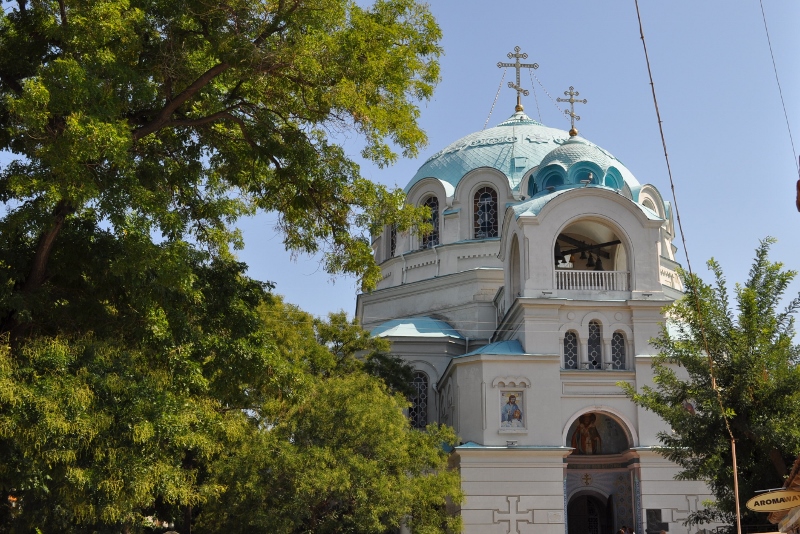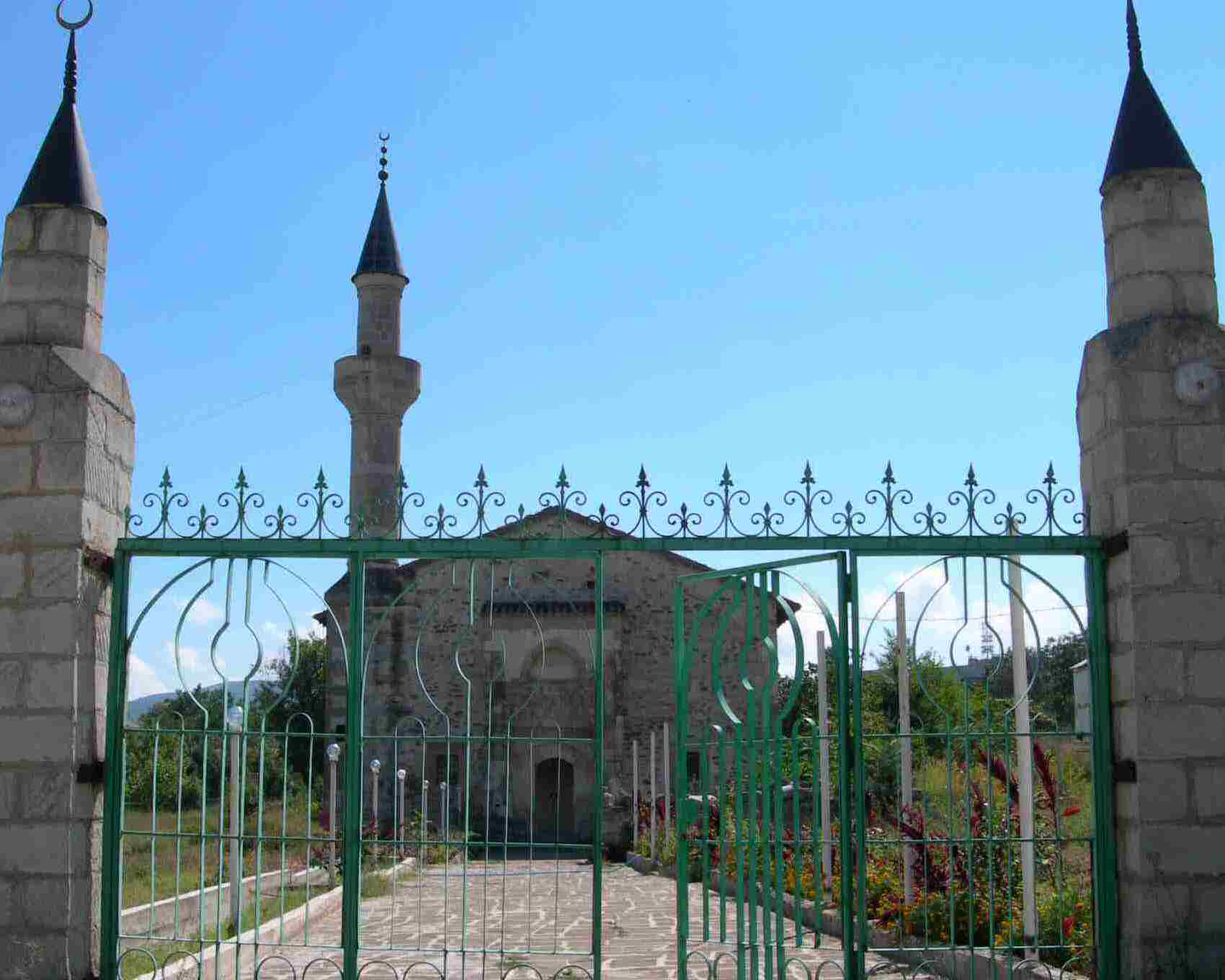
International Committee for Crimea, Inc
ICC, P.O. Box 15078, Washington, DC 20003.
We are grateful to Catherine Cosman for letting us publish the text of her comments, made at the Special Roundtable on Religious Persecution in the Occupied Territories of Ukraine on 4 February 2015, at the Rayburn Building, United States House of Representatives, Washington, DC. The session was organized by Mission Eurasia. Catherine Cosman is a Senior Policy Analyst, United States Commission on International Religious Freedom. — Ed.
Status of Religious Freedom in Crimea Today
By Catherine Cosman
On March 2, 2014 Russian President Putin gave the order for decisive Russian troop movements that resulted in its illegal annexation of Crimea. Attempting to justify this action in a March 18 speech, Putin cited the shared Orthodox "culture, civilization and human values that united the peoples of Russia, Ukraine and Belarus." Yet Russian policy only favors the orthodoxy of the Moscow – not the Kievan –Patriarchate.
Putin’s speech ignored the Crimean Tatars, deported en masse by Stalin in 1944. Only in the 1980’s did the Kremlin allow Crimean Tatars to return to Crimea, despite their 40-year petition campaign. (The first Soviet mass protest movement.) Today, Crimean Tatars comprise 12 percent of Crimea’s population of two million. Almost all Crimean Tatars oppose the Russian annexation, mainly because they hold Russia responsible for the deportation in which half their people died. And indeed, Russia is recognized as the legal successor to the Soviet Union.

|
St. Nicholas Cathedral in Evpotaria, Crimea |
The Kremlin has divided the Crimean peninsula into two Russian federal regions: the Republic of Crimea (with its capital in Simferopol) and the port city of Sevastopol -- it has special equal status with Moscow and St. Petersburg. On March 17, 2014 the White House declared various Ukraine-related sanctions, including against the Crimea-based separatist leader, Acting Crimean Prime Minister Sergei Aksyonov.
Russian law, both the Criminal and Administrative Codes, now applies in Crimea. Some in Crimea will violate Russia’s overly broad Extremism Law. Under that law, any Russian court can declare a text "extremist" and then is usually added to the 2,500 texts banned throughout Russia. Muslim texts constitute the majority of banned religious materials.
Administrative penalties for extremist texts range from fines to temporary closure of religious groups. Religious organizations associated with such titles may also be ruled "extremist" and then are liable to criminal prosecution for "extremist" activity and face a maximum penalty of six years' imprisonment.
Last month the Moscow-based SOVA human rights group issued a report on recent Russian repression of Crimean Tatars, particularly the sentencing of participants in unauthorized meetings. One key mass meeting – banned this year -- is the traditional May 18 commemoration of the 70th anniversary of the Crimean Tatar deportation.
U.S. Secretary of State Kerry issued a special statement on May 16, noting that "Murder, beatings, and the kidnapping of Crimean Tatars and others have become standard fare….Crimean Tatars have been assaulted for speaking their language, and Tatar community leader Mustafa Dzhemilev has been banned from returning to his home in Crimea for five years. Thousands of Tatars and others have fled their homes in Crimea, fearful for their safety. Those who remain face a future of repression, discrimination, censorship, limits on freedom of peaceful assembly and association, and the criminalization of dissent."

|
Ozbek Khan Mosque in Staryi Krym, Crimea |
In October 2014, Crimea's acting Prime Minister Sergei Aksyonov issued a moratorium on raids, searches and literature confiscation until January 1, 2015. Before that, there were many raids on libraries, schools, Muslim homes, mosques and madrassahs, and Jehovah's Witness Kingdom Halls, Forum 18 News Service notes. Fines for possession of Islamic and Jehovah's Witness texts were imposed. Since the moratorium, there do not seem to have been any raids and confiscation of religious literature.
1,546 religious communities in Crimea that were registered with the Ukrainian state must re-register by 1 January 2015 to gain Russian legal status. Communities that function throughout Crimea must register in Moscow, the others in Crimea. Many groups do not know if they will be allowed to remain part of Ukrainian organizations, such as the Moscow Patriarchate and Kiev Patriarchate dioceses, the Greek Catholic Exarchate and Roman Catholic, Lutheran and Armenian Apostolic parishes. The Crimean Department of the Russian Justice Ministry refused to tell Forum 18 if religious groups' previous Ukrainian registration is still valid.
Russia's Federal Migration Service is not extending residence permits for foreigners working for Crimean religious groups. All Catholic priests and nuns must leave by late 2014. Almost all Turkish Muslim imams and religious teachers were ordered to leave Crimea. The Federal Migration Service in Crimea told Forum 18 that only registered religious groups can invite foreigners, but no Crimean religious community is registered.
On October 15, 2014, acting Prime Minister Aksyonov presented a draft law "on freedom of conscience, religious associations and the prevention of religious extremism" to "secure the equality of traditional religious confessions, the constitutional right of citizens to freedom of conscience and religion, as well as public security." It is unclear why preventing religious "extremism" was in the same draft law as ensuring freedom of conscience. The proposed law would also have limited "missionary activity" and production of religious literature to registered religious groups.
Crimea’s Supreme Council rejected the draft law in December 2014, in part because regulating religious organizations and preventing extremism was in the same bill. The Supreme Council's Culture Committee formed a nine-member Working Group including one of Crimea's Deputy Muftis and the Legal Department Head of the Orthodox Simferopol and Crimea Diocese. A deadline of April, 15 2015 was set for a new draft religion law, according to Forum 18. But it is still unclear why a special religion law is needed in Crimea.
Posted: 10 February 2015